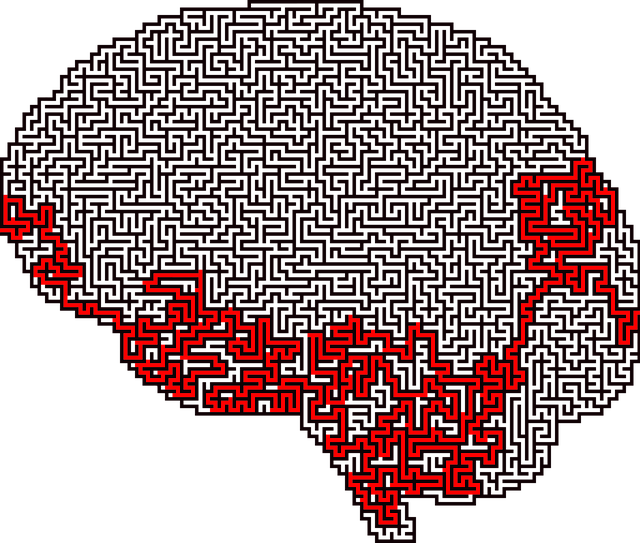Mental health issues significantly impact daily life and well-being, with access to Westminster Alcohol Abuse Therapy offering crucial support. Educating the public about conditions like anxiety, depression, and substance abuse disorders encourages early intervention. Integrating conflict resolution and mindfulness meditation into programs empowers individuals to manage their mental health proactively. An impactful mental health education program, guided by Westminster Alcohol Abuse Therapy principles, includes tailored curriculums, peer support groups, and mindfulness exercises. Cultural sensitivity is vital for inclusive practice, enhancing accessibility and effectiveness. Engaging content, with relatable examples catering to diverse audiences, builds resilience. The WAAT Program collaborates with healthcare providers, community groups, and local businesses to offer holistic treatment for alcohol abuse, continuously evaluating its effectiveness through various assessments and personalized care for diverse populations.
Mental health education programs play a pivotal role in fostering well-being and preventing crises. This article explores how to design effective programs, focusing on the impact of mental health issues and strategies for engaging diverse audiences. We delve into key components, including content tailored to specific needs, as illustrated by the successful Westminster Alcohol Abuse Therapy Program. By understanding the nuances of mental health and employing thoughtful program design, we can revolutionize support systems and improve lives.
- Understanding Mental Health Issues and Their Impact
- Key Components of an Effective Education Program
- Designing Engaging Content for Different Audiences
- Implementing and Evaluating the Westminster Alcohol Abuse Therapy Program
Understanding Mental Health Issues and Their Impact

Mental health issues are widespread and can profoundly affect individuals’ daily lives and overall well-being. Understanding these problems is a pivotal step in creating effective support systems, especially in communities like Westminster, where access to Alcohol Abuse Therapy has been proven invaluable. Conditions such as anxiety, depression, and substance abuse disorders often go unrecognized, leading to unnecessary suffering. Educating the public about mental health fosters an environment of empathy and encourages early intervention, potentially preventing more severe consequences.
By integrating knowledge about various mental health challenges, individuals can develop essential skills for emotional well-being promotion techniques. This includes conflict resolution techniques that help navigate difficult interpersonal interactions. Additionally, mindfulness meditation has gained recognition as a powerful tool to enhance mental resilience and overall peace of mind. These practices, when incorporated into educational programs, can empower people to manage their mental health proactively and seek appropriate support when needed, mirroring the therapeutic benefits accessible through Westminster Alcohol Abuse Therapy services.
Key Components of an Effective Education Program

An effective mental health education program should incorporate several key components to ensure it meets its intended goals and positively impacts participants’ lives. Firstly, Westminster Alcohol Abuse Therapy emphasizes structured curriculums tailored to specific needs, whether focusing on stress management, anxiety reduction, or substance abuse recovery. These programs must be comprehensive, covering various aspects of mental wellness, including psychological theories, coping strategies, and self-care practices.
Secondly, Mental Wellness Coaching Programs Development plays a crucial role in fostering personal growth and resilience. Incorporating elements like peer support groups, mindfulness exercises, and emotional healing processes allows participants to build supportive communities and develop skills for long-term mental health maintenance. Additionally, Cultural Sensitivity in Mental Healthcare Practice is essential, ensuring that educational content and delivery methods are inclusive and respectful of diverse backgrounds, thereby enhancing accessibility and effectiveness.
Designing Engaging Content for Different Audiences

Designing engaging content is essential for any mental health education program, especially when catering to diverse audiences like those seeking Westminster Alcohol Abuse Therapy. The key lies in creating modules that resonate with individuals from various backgrounds and experiences. For instance, while introducing mindfulness meditation techniques, instructors should provide relatable examples that speak to different age groups, cultures, and personal struggles. This inclusive approach ensures that everyone feels their unique challenges are acknowledged and addressed.
Incorporating resilience-building exercises tailored for specific demographics can further enhance engagement. Young adults struggling with substance abuse might benefit from stress management strategies focused on navigating academic pressures, while older individuals could find relevance in discussions on age-related mental health concerns. Effective risk management planning for mental health professionals is also crucial, offering practical tips for handling crises and fostering a supportive environment.
Implementing and Evaluating the Westminster Alcohol Abuse Therapy Program

The Westminster Alcohol Abuse Therapy (WAAT) Program serves as a model for comprehensive mental health education and intervention. Its implementation involves a multi-faceted approach, beginning with identifying at-risk individuals within targeted communities. The program’s success hinges on collaboration between healthcare providers, community organizations, and local businesses to create a supportive environment. By integrating evidence-based practices and self-awareness exercises, WAAT aims to address alcohol abuse holistically.
Evaluation of the WAAT Program is an ongoing process that includes measuring participant satisfaction, tracking behavioral changes, and assessing long-term recovery rates. This data informs adjustments to the program’s curriculum and delivery methods, ensuring its effectiveness. Incorporating Healthcare Provider Cultural Competency Training and burnout prevention strategies further enhances the program’s impact, allowing for more nuanced care tailored to diverse populations.
Mental health education programs, like the Westminster Alcohol Abuse Therapy initiative, play a pivotal role in fostering awareness and providing support. By integrating engaging content tailored to diverse audiences, as demonstrated by the successful implementation of the Westminster Alcohol Abuse Therapy program, we can effectively navigate mental health challenges. Key components include comprehensive understanding, interactive design, and continuous evaluation, all essential elements for creating impactful programs that make a tangible difference in people’s lives.











